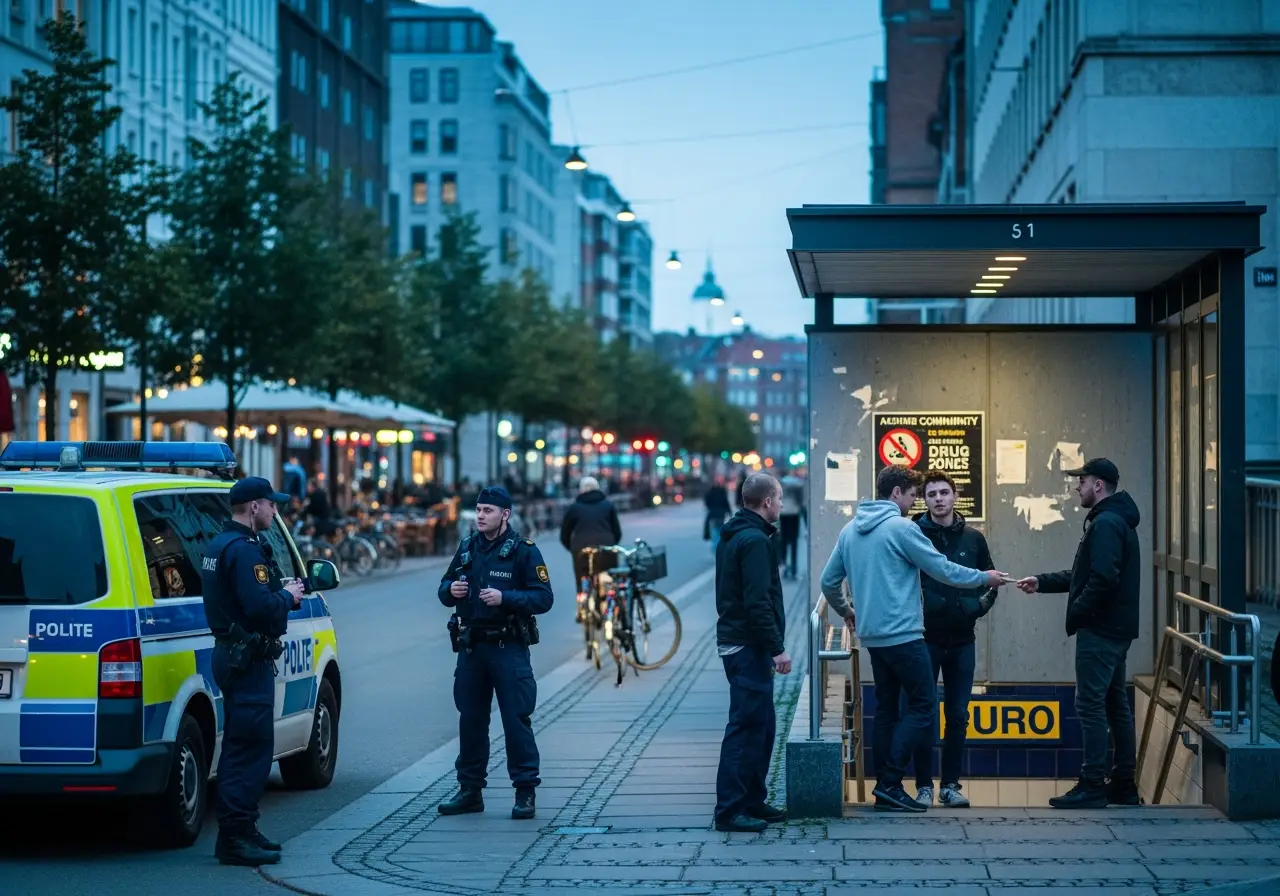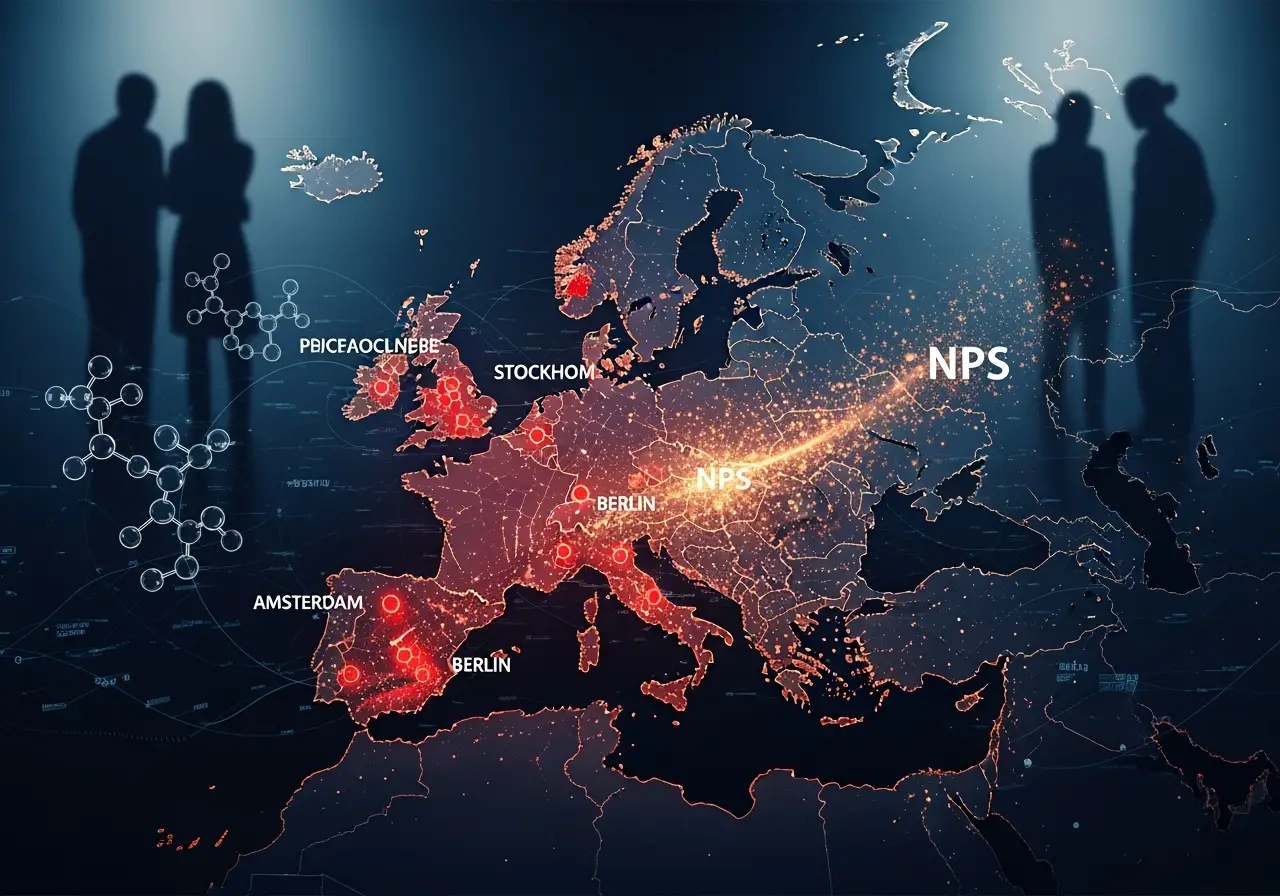Denmark is often seen as a model of progressive social policy, a nation that balances a liberal outlook with a strong commitment to public health and safety. This reputation extends to its drug policies, where it has long championed harm reduction and treatment over pure punishment. But this pragmatic approach is now facing a severe test. The country is being drawn deeper into Europe’s violent drug conflicts, serving as a key transit country for narcotics destined for the rest of Scandinavia and grappling with a domestic market flooded with high-purity cocaine.
The Danish dilemma is clear: how does a nation built on trust and welfare contend with the brutal, borderless nature of modern organized crime? While the country is making its medical cannabis program a permanent fixture, it is simultaneously fighting a rising tide of hard drugs and the criminal networks that profit from them.
The Northern Corridor for Europe’s Drug Trade
Denmark’s strategic location makes it an unavoidable corridor for drugs moving from production and trafficking hubs in the Netherlands and Spain towards the lucrative markets in Sweden and Norway. Major police operations have revealed that sophisticated international networks, often with connections to the Balkans, use Denmark as a critical logistical link to transport massive quantities of cocaine, cannabis, and amphetamines.
In a recent, long-running operation coordinated with Norwegian authorities, a single criminal network responsible for trafficking drugs through Denmark was dismantled, resulting in collective prison sentences of over 1,000 years for 152 traffickers in both countries. This stunning figure illustrates the immense scale of the problem. While law enforcement celebrates such victories, they also serve as a stark reminder of the sheer volume of drugs passing through the country.
The Cocaine Influx and Normalization
Like its Nordic neighbors, Denmark has seen a significant increase in the availability and use of cocaine. Wastewater analysis from major cities confirms high levels of consumption, and the drug is no longer confined to niche user groups. This normalization of a highly addictive and dangerous stimulant poses a major public health challenge.
The social acceptance of cocaine use can mask its severe consequences, which include a higher risk of cardiovascular events, mental health disorders, and dependency. As the drug becomes more common in nightlife and social settings, it creates a new generation of users who may be unaware of the profound risks they are taking.
A Nation of Users: High Consumption Rates
Denmark has some of the highest lifetime prevalence rates for illicit drug use in Europe. Cannabis is the most widely consumed substance, with a significant portion of the adult population having tried it. The country’s move to make its medical cannabis pilot scheme permanent reflects a pragmatic approach to this reality, aiming to provide safe, regulated products for patients.
However, high rates of consumption for other substances, including stimulants like cocaine and MDMA, are a significant concern. The widespread use of these drugs creates a large and profitable domestic market, making Denmark not just a transit country but a valuable destination for traffickers.
The Battle Against Overdoses and New Threats
Denmark has a well-developed public health system with harm reduction services aimed at minimizing the damage caused by drug use. However, like the rest of Europe, it faces the constant threat of new and highly potent synthetic drugs. While the country has not yet seen a widespread crisis on the scale of North America’s fentanyl epidemic, the potential for these substances to enter the drug supply is a major concern for health authorities.
Every overdose death is a preventable tragedy, and ensuring that first responders and people who use drugs have access to the overdose-reversal drug naloxone is a critical part of the national strategy. Vigilance and rapid response systems are essential to detect and react to the appearance of new, dangerous substances on the market.
Securing a Nation’s Future
The challenge for Denmark is to maintain its humane, health-focused approach to drug policy while confronting the harsh reality of international organized crime. Cracking down on trafficking networks is essential for national security, but it is only one part of the solution. The persistent demand for drugs is the engine that drives this entire criminal ecosystem.
This is where the Narconon program provides an indispensable tool. It offers a path to recovery that is not about managing addiction but about ending it. Through its unique, drug-free approach—which includes a deep detoxification process to eliminate drug cravings and comprehensive life-skills training to restore a sense of self-worth and personal responsibility—the Narconon program empowers individuals to build genuinely new, drug-free lives. For a nation like Denmark, which values individual well-being and societal safety, providing a real way out of addiction is the most effective long-term strategy to protect its people and secure its future.
Sources:
- European Monitoring Centre for Drugs and Drug Addiction (EUDA) / European Drug Report
- Eurojust and Europol operational press releases.
- National reports from the Danish Health Authority (Sundhedsstyrelsen).
- Data synthesized from national and European reports on the drug situation.


